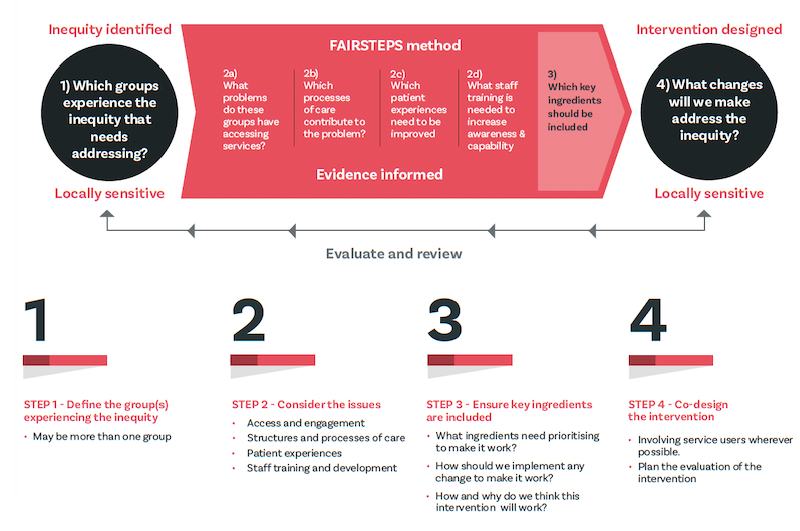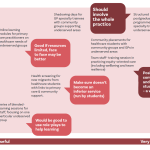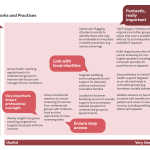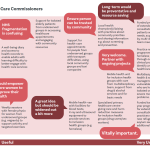The FAIRSTEPS study, commissioned by Health Education England and led by the Academic Unit of Primary Medical Care at the University of Sheffield, has developed an evidence-informed framework to guide the commission, design and delivery of interventions in primary care to address health inequities, involving four steps.
Practical steps for equitable primary care

The FAIRSTEPS study also provides a set of tried and tested practical actions, prioritised by feasibility and usefulness after consultations with practitioners and patients.
Click on the images below to view actions for different stakeholders. The quotations are comments given by the study participants.
Actions for education and training providers
Training and education interventions can inform strategy for national and regional bodies responsible for training the future NHS workforce. These interventions target equipping the future workforce to the particular challenges of working with underserved groups through learning at various stages of their training.
Actions for primary care providers
Interventions for primary care providers tend to fall into three groups: (1) interventions which practices could adapt independently through altering their systems and processes of care; (2) collaborative interventions involving others such as patient groups, charity or community groups; and (3) targeted interventions to help patients support their own wellbeing.
Actions for primary care commissioners
This group of interventions contains the largest number of prioritised interventions. It aims to help commissioners of primary care services to identify where and when to target investment at networks or practices or at specialised commissioned services.



